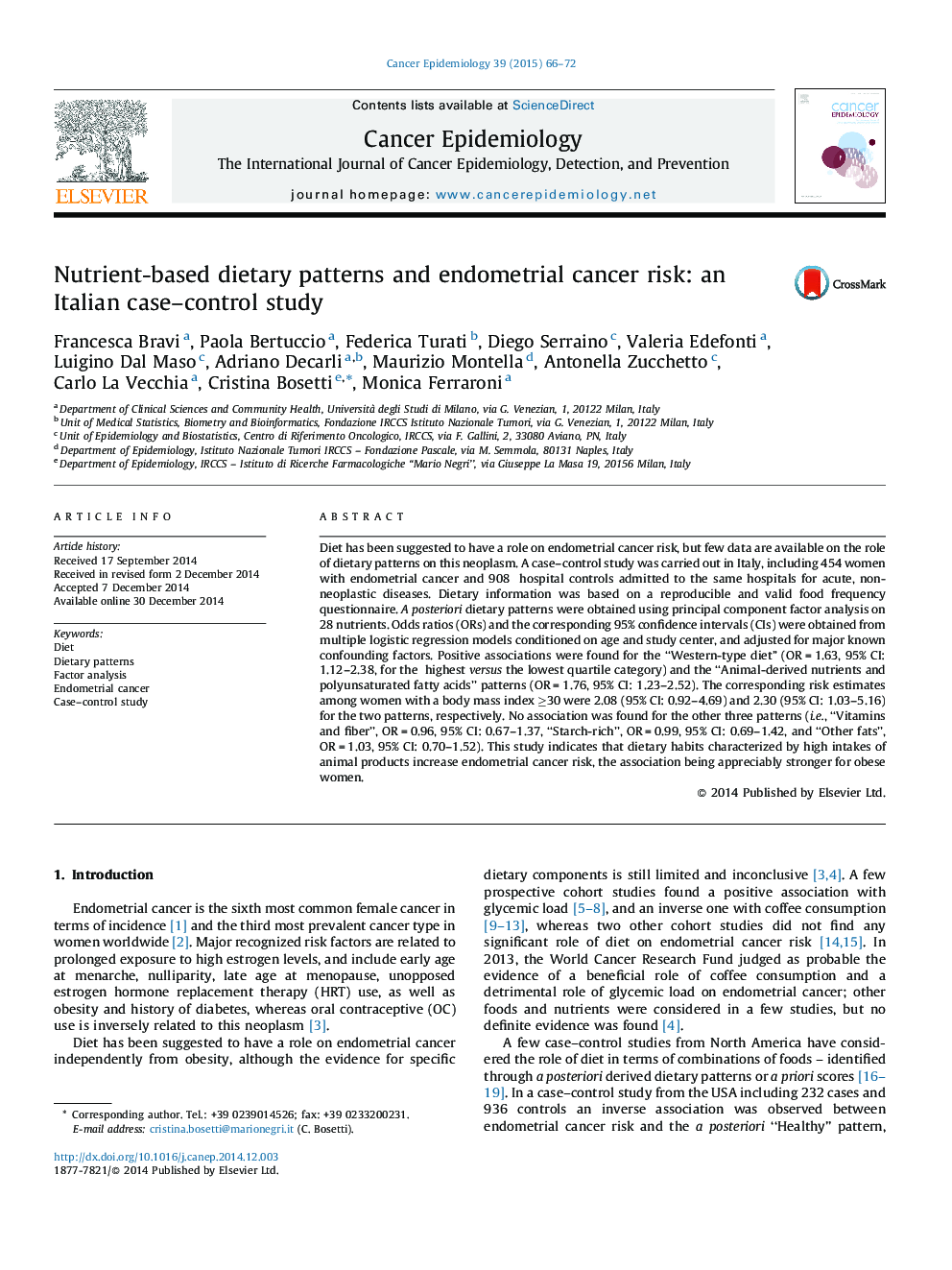| Article ID | Journal | Published Year | Pages | File Type |
|---|---|---|---|---|
| 10897458 | Cancer Epidemiology | 2015 | 7 Pages |
Abstract
Diet has been suggested to have a role on endometrial cancer risk, but few data are available on the role of dietary patterns on this neoplasm. A case-control study was carried out in Italy, including 454 women with endometrial cancer and 908 hospital controls admitted to the same hospitals for acute, non-neoplastic diseases. Dietary information was based on a reproducible and valid food frequency questionnaire. A posteriori dietary patterns were obtained using principal component factor analysis on 28 nutrients. Odds ratios (ORs) and the corresponding 95% confidence intervals (CIs) were obtained from multiple logistic regression models conditioned on age and study center, and adjusted for major known confounding factors. Positive associations were found for the “Western-type diet” (OR = 1.63, 95% CI: 1.12-2.38, for the highest versus the lowest quartile category) and the “Animal-derived nutrients and polyunsaturated fatty acids” patterns (OR = 1.76, 95% CI: 1.23-2.52). The corresponding risk estimates among women with a body mass index â¥30 were 2.08 (95% CI: 0.92-4.69) and 2.30 (95% CI: 1.03-5.16) for the two patterns, respectively. No association was found for the other three patterns (i.e., “Vitamins and fiber”, OR = 0.96, 95% CI: 0.67-1.37, “Starch-rich”, OR = 0.99, 95% CI: 0.69-1.42, and “Other fats”, OR = 1.03, 95% CI: 0.70-1.52). This study indicates that dietary habits characterized by high intakes of animal products increase endometrial cancer risk, the association being appreciably stronger for obese women.
Related Topics
Life Sciences
Biochemistry, Genetics and Molecular Biology
Cancer Research
Authors
Francesca Bravi, Paola Bertuccio, Federica Turati, Diego Serraino, Valeria Edefonti, Luigino Dal Maso, Adriano Decarli, Maurizio Montella, Antonella Zucchetto, Carlo La Vecchia, Cristina Bosetti, Monica Ferraroni,
